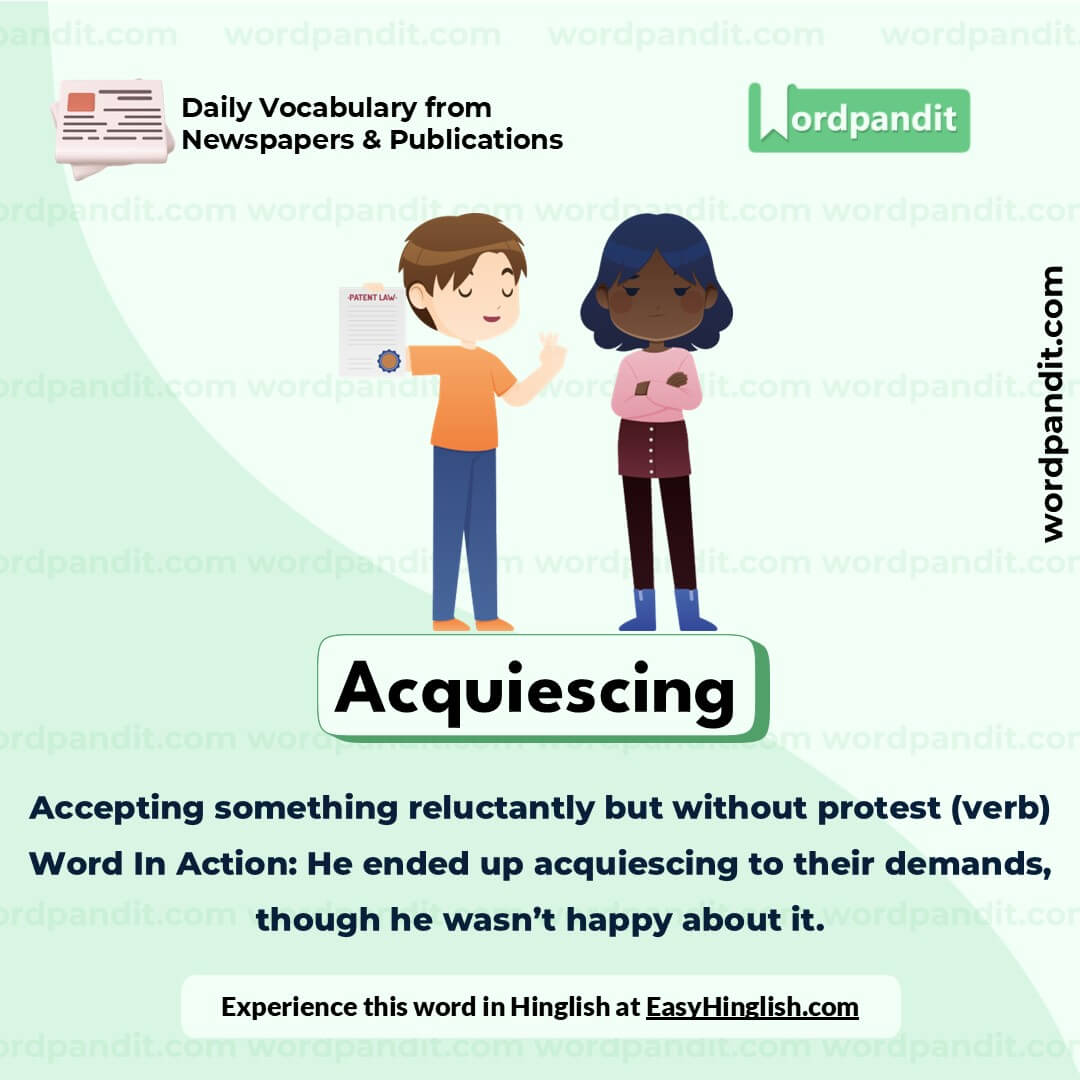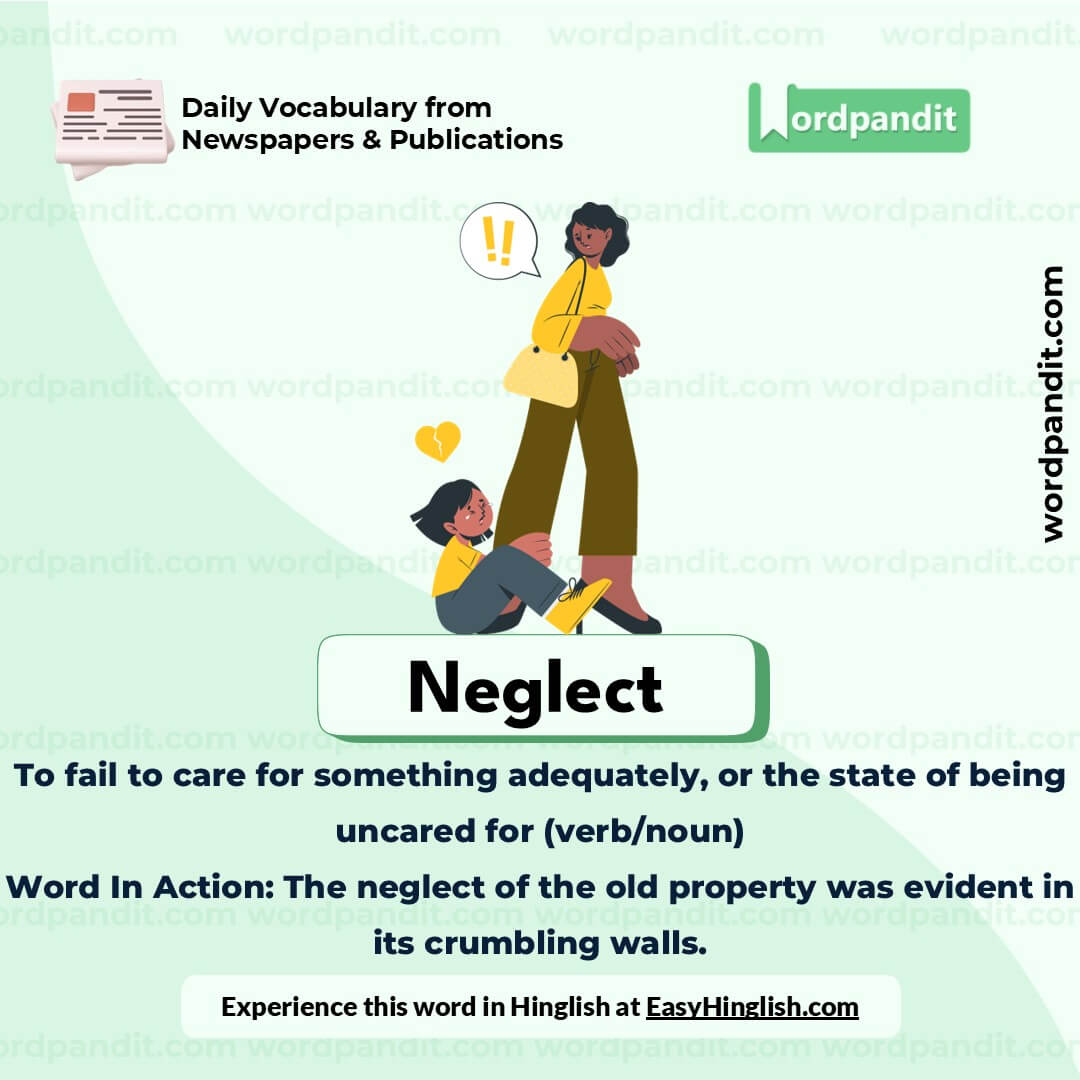Daily Vocabulary from International Newspapers and Publications
Expand Your Vocabulary with Wordpandit’s Global Vocabulary Hub
At Wordpandit, we are committed to helping you develop a truly global vocabulary by drawing from some of the most respected international publications. This section is designed to keep you ahead of the curve by introducing you to words that define global conversations and trends.
The Power of Global Sources
To help you think and communicate on a global scale, we curate vocabulary from renowned international sources, such as:
- The New York Times
- The Washington Post
- BBC
- The Guardian
- The Economist
- Scientific American
- Psychology Today
- And many more...
Stay Global, Stay Competitive
Our daily updates from international publications ensure you are consistently exposed to new words that reflect global news and developments, making sure your vocabulary is not only current but also globally relevant.
Enhance Your Global Perspective
Whether you’re preparing for international exams, aiming to excel in global business communication, or want to enhance your language skills for personal growth, Wordpandit offers the resources you need to thrive in a global context.
Effective Learning, Global Reach
Our learning methodology combines global examples, memory aids, and interactive activities, allowing you to internalize new words effectively and apply them in real-world scenarios.
Begin Your Global Vocabulary Journey Now!
Why Choose Wordpandit?
Practical Learning: Focus on words you'll actually encounter in real-world reading, enhancing your comprehension and communication skills.
Diverse Content: From current affairs to scientific breakthroughs, our varied sources expose you to vocabulary across multiple domains.
Effortless Integration: Make Wordpandit a part of your daily routine. Just a few minutes each day can significantly boost your lexicon over time.
Your Path to Vocabulary Mastery
- Visit our Daily Vocabulary section regularly
- Explore new words and their usage in context
- Practice incorporating these words into your own writing and speech
- Track your progress as your vocabulary expands
Start Your Journey Today
Embark on your vocabulary enhancement journey with Wordpandit. By consistently engaging with our daily posts, you'll build a robust vocabulary that serves you well in academic, professional, and personal contexts.
Remember, a word a day keeps linguistic limitations at bay. Make Wordpandit your daily companion in the quest for vocabulary excellence!
WORD-1: Acquiescing
Context:
"I have found a certain freedom in acquiescing to the universe and accepting that all I have a say in is my own internal experience." - Psychology Today
Explanatory Paragraph:
The word acquiescing refers to the act of agreeing or consenting to something passively, without protest. It suggests acceptance of a situation or decision, often without resistance, and can carry a sense of yielding gracefully.
Meaning: Accepting something reluctantly but without protest (verb)
Pronunciation: ak-wee-ES-ing
Difficulty Level: ⭐⭐⭐ (Intermediate)
Etymology: From Latin acquiescere, meaning "to find rest in" or "to remain at peace"
Synonyms & Antonyms:
Synonyms: comply, consent, yield, agree, concede
Antonyms: resist, oppose, reject, protest
Usage Examples:
- After hours of debate, she ended up acquiescing to the majority's decision.
- He showed his maturity by acquiescing to his parents' rules, even when he disagreed with them.
- By acquiescing to the changes at work, the employees avoided further conflicts.
- The villagers reluctantly acquiesced to the government’s plans for redevelopment.
Cultural Reference:
"The man of virtue makes the difficulty to be overcome his first business, and success only a subsequent consideration; this may be called acquiescing in the decree of Heaven." - Confucius
Think About It:
Can acquiescing sometimes lead to personal growth or peace, even if it means giving up control? Why or why not?
Quick Activity:
Think of a recent situation where you acquiesced to a decision or event. Write a short reflection on how it affected you emotionally.
Memory Tip:
Link "acquiescing" with "quietly accepting" to remember its meaning of passive agreement.
Real-World Application:
In professional and personal settings, "acquiescing" is a valuable term to describe moments of acceptance or yielding, especially when navigating conflicts or compromises.
WORD-2: Advocacy
Context:
"Mary Wareham, deputy director of the crisis, conflict and arms division at Human Rights Watch, the advocacy group, who said that even nonpersistent mines hold risks for civilians, require complicated cleanup efforts and are not always reliably deactivated." - Washington Post
Explanatory Paragraph:
The word advocacy refers to the act of publicly supporting or arguing in favor of a cause, policy, or group. It involves efforts to bring about change, raise awareness, or influence decisions on social, political, or other significant issues.
Meaning: Public support for or recommendation of a particular cause or policy (noun)
Pronunciation: AD-vuh-kuh-see
Difficulty Level: ⭐⭐ (Easy)
Etymology: From Latin advocatia, meaning "pleading" or "advocating"
Synonyms & Antonyms:
Synonyms: support, promotion, backing, endorsement, championing
Antonyms: opposition, protest, resistance, disapproval
Usage Examples:
- The organization’s advocacy for climate action has gained international recognition.
- Her advocacy for children's education has transformed the lives of many underprivileged students.
- The lawyer's advocacy in court was crucial in securing justice for her client.
- Advocacy groups are often instrumental in influencing public policies and laws.
Cultural Reference:
"Advocacy is the spark that lights the fire of social change." - A saying emphasizing the role of advocacy in transforming societies.
Think About It:
What qualities make someone an effective advocate for a cause they believe in?
Quick Activity:
Choose a cause you are passionate about. Write a short paragraph advocating for it, explaining why it is important and what actions others can take to support it.
Memory Tip:
Think of "advocacy" as "adding a voice" to remember its meaning of public support or promotion.
Real-World Application:
The word "advocacy" is widely used in discussions about social movements, public policy, and individual or organizational efforts to create positive change in society.
WORD-3: Neglect
Context:
"Given the extreme neglect of sickle cell disease to date, the sheer number of people affected and all we could learn by studying the illness, we urgently need a global initiative to advance research and clinical trials for sickle cell patients, particularly in low-income settings." - Scientific American
Explanatory Paragraph:
The word neglect refers to the failure to care for or give attention to someone or something properly. It can be deliberate or accidental, often resulting in harm, deterioration, or a lack of progress due to inaction or disregard.
Meaning: To fail to care for something adequately, or the state of being uncared for (verb/noun)
Pronunciation: nuh-GLEKT
Difficulty Level: ⭐⭐ (Easy)
Etymology: From Latin neglegere, meaning "to disregard" or "not heed"
Synonyms & Antonyms:
Synonyms: ignore, overlook, disregard, abandon, omit
Antonyms: care, attend, nurture, prioritize, focus
Usage Examples:
- The old house fell into disrepair due to years of neglect.
- The teacher warned the students about the consequences of neglecting their studies.
- The neglect of the city's infrastructure has led to frequent power outages.
- Neglecting personal health can result in long-term medical issues.
Cultural Reference:
"Neglect is often the silent thief of time and progress, taking away opportunities without notice." - A common reflection on the impact of inaction.
Think About It:
What are some areas in your life or community where neglect has caused harm, and how can they be addressed?
Quick Activity:
Think of something you’ve neglected recently, whether it’s a task, a relationship, or a responsibility. Write down one step you can take today to address it.
Memory Tip:
Link "neglect" to "negative effect" to remember its association with harm caused by lack of care or attention.
Real-World Application:
The concept of "neglect" is critical in fields such as healthcare, education, and public policy, where lack of attention can have far-reaching consequences. It serves as a reminder of the importance of vigilance and care.
WORD-4: Discretionary
Context:
"We are taking low-risk mothers and then performing these discretionary C-sections, and then from the next birth on they will very likely need another surgical, or another C-section, procedure." - Scientific American
Explanatory Paragraph:
The word discretionary refers to something that is optional or left to individual choice or judgment. It often implies that there is no strict obligation or rule, and decisions can be made based on personal or situational factors.
Meaning: Left to individual choice or judgment (adjective)
Pronunciation: dis-KRESH-uh-ner-ee
Difficulty Level: ⭐⭐⭐ (Intermediate)
Etymology: From Latin discretio, meaning "separation" or "power of decision"
Synonyms & Antonyms:
Synonyms: optional, elective, voluntary, noncompulsory
Antonyms: mandatory, compulsory, obligatory, required
Usage Examples:
- The company offers discretionary bonuses to employees who exceed their targets.
- Travel expenses for the conference are discretionary and not covered by the organization.
- She was given discretionary powers to approve or reject the project proposals.
- The restaurant charges a discretionary service fee, which customers can opt out of paying.
Cultural Reference:
"Discretionary actions reflect personal judgment and responsibility, as famously illustrated in the phrase, 'use your discretion.'" - Common wisdom emphasizing individual decision-making.
Think About It:
In what situations do you think discretionary decision-making is beneficial, and when might it lead to unintended consequences?
Quick Activity:
Identify a recent decision you made that was discretionary. Reflect on the factors that influenced your choice and the outcome.
Memory Tip:
Link "discretionary" to "decisionary" to remember its connection to choices and personal judgment.
Real-World Application:
The term "discretionary" is widely used in fields like finance, law, and medicine to describe actions or expenses that are optional and depend on individual judgment.
WORD-5: Retaliate
Context:
"Russian President Vladimir Putin has warned that Moscow will retaliate for the latest missile strikes from the Army Tactical Missile System, or ATACMS." - Washington Post
Explanatory Paragraph:
The word retaliate refers to taking action against someone or something in response to a perceived wrong or injury. It often implies returning harm for harm, typically as a form of revenge or retribution.
Meaning: To make an attack or response to a similar attack or action (verb)
Pronunciation: ri-TAL-ee-ate
Difficulty Level: ⭐⭐⭐ (Intermediate)
Etymology: From Latin retaliare, meaning "to pay back in kind"
Synonyms & Antonyms:
Synonyms: avenge, revenge, counterattack, reciprocate
Antonyms: forgive, pardon, condone, reconcile
Usage Examples:
- The country vowed to retaliate against the cyberattacks with increased security measures.
- He decided not to retaliate after being insulted, choosing instead to walk away.
- The rebels retaliated with a series of bombings in response to government airstrikes.
- The team retaliated by scoring two goals after their opponents fouled their star player.
Cultural Reference:
"An eye for an eye will only make the whole world blind." - Mahatma Gandhi, cautioning against cycles of retaliation and violence.
Think About It:
Do you think retaliation is ever justified? If so, under what circumstances?
Quick Activity:
Write about a time when you or someone you know chose not to retaliate in a tense situation. What was the outcome?
Memory Tip:
Think of "retaliate" as "re-tallying" harm, where the harm is returned in kind.
Real-World Application:
The word "retaliate" is frequently used in discussions about conflicts, whether personal, legal, or international, highlighting the nature of reciprocal actions in tense situations.
















